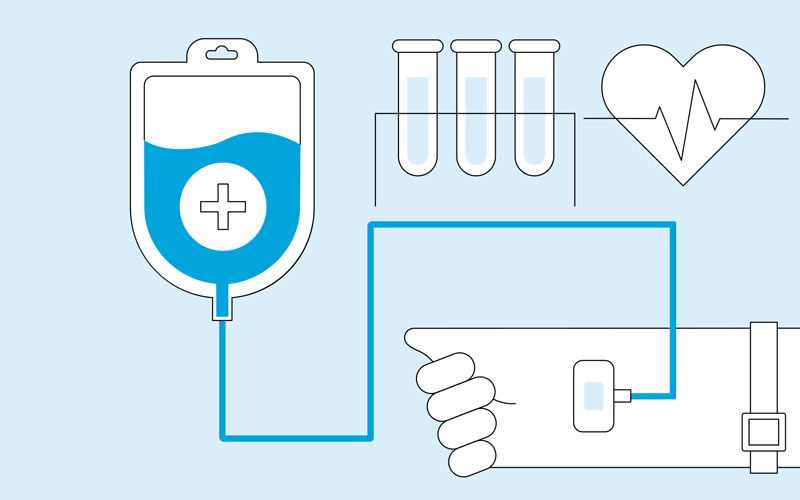Calvin Campbell, Senior Community Engagement Officer at NHS Blood and Transplant, shares his story.

Throughout my life, hospitals have been a second home to me. My name is Calvin Campbell, and I have been deeply impacted by sickle cell disease – an inherited blood disorder that has not only shaped my own experiences but also profoundly affected my family and friends.
Sickle cell is a genetic condition that has been with me since birth, altering the course of my life from as early as six months old when I had my first sickle cell crisis. Since then, I have lived with relentless pain, enduring every second, minute and day in its grip. Sleep itself offers no respite, as I drift into slumber amidst a backdrop of pain and wake up to its unwelcome presence.
The unique agony of sickle cell pain defies comparison and knows no bounds. Despite medical advancements, no medication, including opioids, can fully alleviate this pain – at best, it can only provide temporary relief.
Growing up with sickle cell meant spending more time in hospital wards than at home, missing significant portions of schooling, college and university. One of the challenges I faced was creating explanations for my prolonged absences, weaving tales to mask the truth of my condition from peers and educators who often lacked understanding or empathy.
Navigating from one medical crisis to another, I found myself isolated for extended periods due to compromised immunity – a stark reality that forced me to fabricate stories about my whereabouts to shield myself from judgement and ridicule.
While sickle cell is more prevalent in individuals of African and Caribbean descent, it affects diverse ethnic groups across the globe. My lifeline amidst this struggle has been the regular red cell exchanges I undergo every four weeks, receiving vital blood units from generous donors. These exchanges sustain my health and vitality, underscoring the critical need for blood donations, especially from individuals with specific ethnic backgrounds and compatible blood types.
The support I have received has not only kept me alive but has also empowered me to contribute meaningfully to the healthcare sector. Today, I work with NHS Blood and Transplant, advocating for blood donations and raising awareness about conditions such as sickle cell.
Despite the challenges, I cherish each day as a gift, grateful for the opportunity to be present for my children and grandchildren – a privilege made possible by the selfless act of blood donation. My journey underscores the importance of community support, medical advancements and the resilience of the human spirit in overcoming adversity.
In sharing my story, I hope to inspire greater understanding, compassion, and action towards improving the lives of those living with sickle cell and other chronic illnesses.
Sickle cell facts
- Approximately 17,500 people in the UK have sickle cell disease.
- The pain occurs when the cells change shape after oxygen has been released. The red blood cells then stick together, causing blockages in the small blood vessels.
- People with sickle cell are at risk of complications: stroke, acute chest syndrome, blindness, bone damage and priapism.
Image credit | Shutterstock
